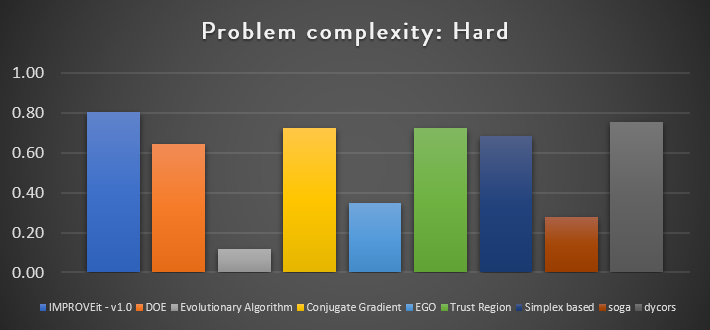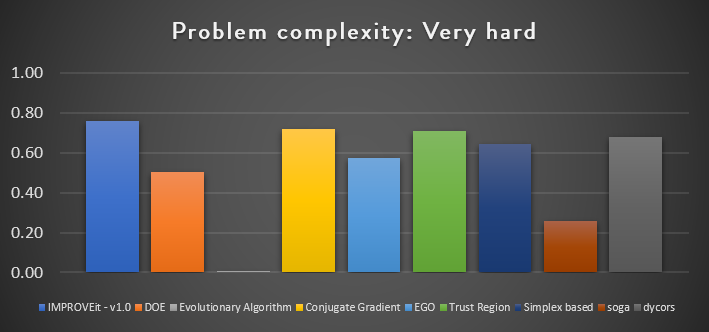IMPROVEit is periodically tested against a wide range of optimization problems, test functions, and other algorithms related to design exploration in order to grant the best performance of our solver.
For this reason all internal parameters have been optimized to efficiently solve real problems, that are typically represented by:
– small budget (engineer time is limited, boss wants the solution as soon as possible and simulations take long time to run)
– large dimensionality (many decision variables).
In all the tests we subject IMPROVE it to, it has shown excellent performance over a very large set of test functions taken from the popular framework COCO on which we have based our benchmark. The solver shows a better performance than traditional genetic or evolutionary algorithms, and shows a constant gain on the objective function without never flattening.
Here you can see the results reaching by IMPROVEit; our optimization software is always the best performing!
Global score:

Bar chart comparing our solver with well-known optimization algorithms over a wide range of test functions. This is a comprehensive result coming from testing our algorithm against other common optimization techniques on 24 test functions, covering the typical complexity of engineering problems
(dim: 2-20, iter max: < 200).
By problem complexity:
A typical classification for problem complexity is the ratio between the number of calls to the black-box model that are performed (alias budget) over the number of inputs of a given task (alias dimensions). By considering the most of engineering problems we can classify them among ‘hard’ (3/5 over a 5 grade scale) and ‘very hard’ (4/5 over a 5 grade scale), considering roughly budgets that are at the same magnitude order of the dimensions. For these problems, genetic and evolutionary algorithms typically do not perform well because of the large number of calls to the black-box function needed to generate the population.

IMPROVEit performance on hard complexity problems.

IMPROVEit performance on very-hard complexity problems.
What do you expect to optimize? Start now!


